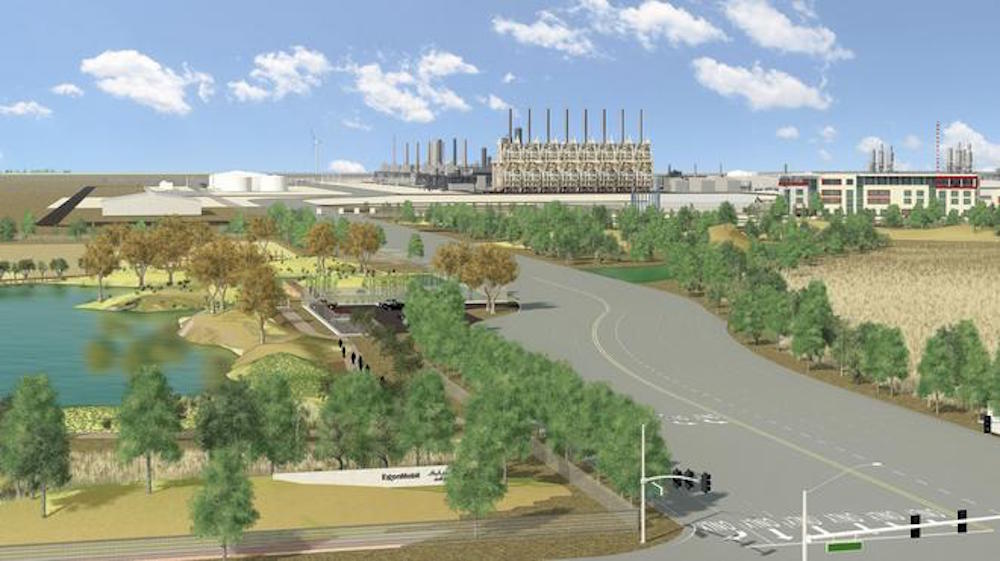
An architect’s rendering of the ExxonMobil/SABIC plastics plant proposed for the Gregory-Portland area. The Texas Commission on Environmental Quality is reviewing the company’s request for air quality permits. Courtesy illustration
A judge’s decision next week will determine how much longer ExxonMobil — and the Coastal Bend — will have to wait for authorities to conclude the air quality permitting process for a $10 billion plastics plant planned near Gregory. The hearing also determined the Sierra Club and Texas Campaign for the Environment, on behalf of Portland Citizens United, have standing in the case.
Administrative law Judge Casey Bell heard arguments from both sides of the timeline debate, with those against the plant being built at all citing reasons to delay the process. Those supporting the plant, including most elected officials and Gulf Coast Growth Ventures, argued for completing the process within the suggested six-month timeframe. The hearing was held Thursday, Sept. 6, at the Nueces County Courthouse.
Already 16 months in, the permitting process with the Texas Commission on Environmental Quality determines whether the guidelines and procedures set up by ExxonMobil follow state requirements for protecting the local environment when the plant is up and running.
“The TCEQ has an extensive set of requirements we must meet in order to be issued a permit protective of human health and the environment,” said Jacob McAlister at the hearing.
McAlister is the manufacturing manager of Gulf Coast Growth Ventures, an ExxonMobil entity headquartered in Portland to handle local issues regarding the plant project. The high-profile organization often donates to local charities, attends government meetings to represent the project, and operates programs focused on training and hiring local workers and businesses.
A contested case hearing, which was requested by Gulf Coast Growth Ventures, determines who the affected parties are in a permit request, and sets procedural timelines. Similar to a civil trial, witnesses testify and evidence is presented before a judge.
Asking for an extension of the proposed six-month timeline were attorneys representing the Sierra Club and Texas Campaign for the Environment, who attended the hearing on behalf of the locally formed Portland Citizens United.
Arguments for the the extension included:
• four more months in an already lengthy process is “no big deal;”
• opposing attorneys need more time to study the thousands of pages of documents submitted;
• and that those documents were incomplete because of extensively redacted material.
The attorney for Gulf Coast Growth Ventures countered that the opposition has had plenty of time to review, that redactions were to protect trade secrets, and that every extension costs the company “millions of dollars.”
While those for the plant cite the thousands of jobs and economic boost that will come with it, those opposed say more than the local air quality will be negatively affected. They are also opposed to the daily release of industrial wastewater into the bays and estuaries and have raised concerns about the amount of water required to operate the plant in a semi-arid, drought-prone part of the world.





